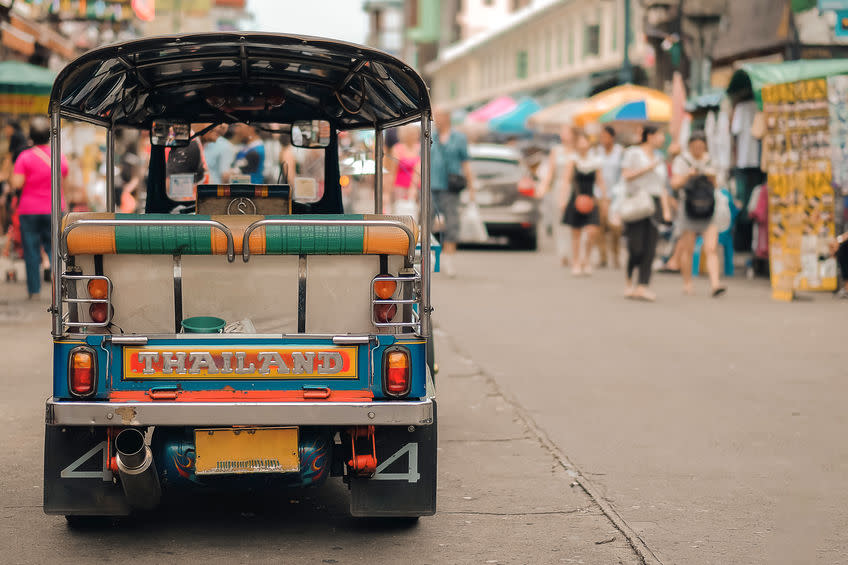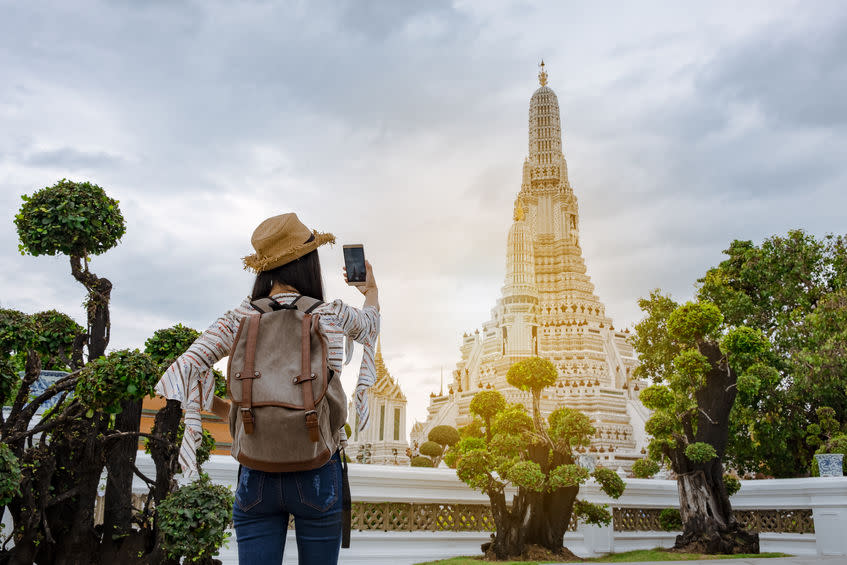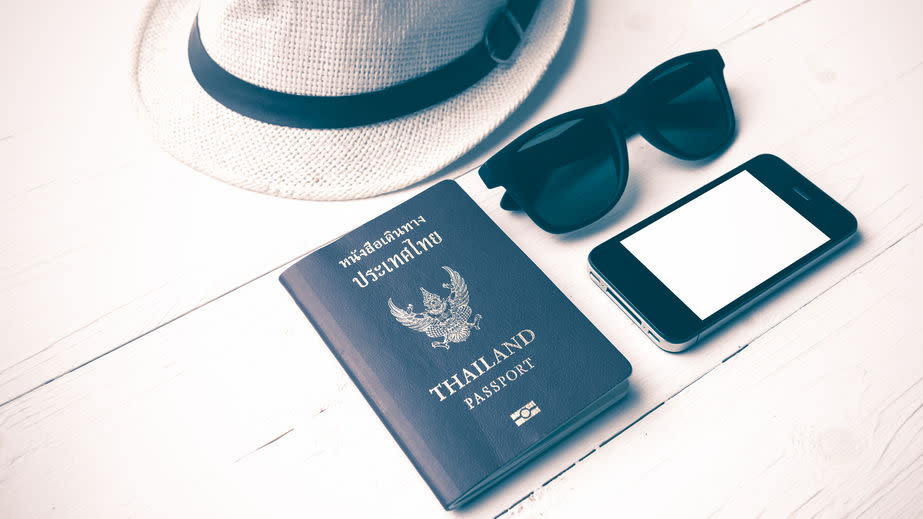5 Popular Places in Thailand and Things you Need Know Before Planning Your Stay

In this article:
Thinking of taking advantage of the recently launched Destination Thailand Visa? Here are a few things to know before you move to Thailand.
Malaysians love Thailand, don’t we? And no, I don’t mean the ubiquitous Tom Yam and Thai restaurants in our country. I’m talking about heading over and visiting “The Land of Smiles” itself.
Need proof? In 2023 alone, a whopping 4.3 million Malaysian tourists were recorded entering Thailand (yours truly included). It’s estimated that over RM4.6 billion were spent by the tourists.
And with the increasing popularity of remote working and the digital nomad lifestyle, you might even be considering moving and living in the country. But before you do, here are a few things you need to know before moving to Thailand as a Malaysian.
What is Destination Thailand Visa?

Did you Know that Thailand Recently Launched a Destination Thailand Visa?
At the time of writing, this is a fresh piece of news because the Destination Thailand Visa (DTV) was only launched on June 1, 2024! It serves as an incentive to foreigners who work remotely, often known as “digital nomads”.
With a DTV, you can stay in Thailand for a period of up to five years. However, this isn’t a continuous five-year stay. You are required to leave and reenter the country every 180 days. This is still an improvement from the previous rule, where digital nomads could only stay in Thailand on tourist visas for up to 60 days.
The visa is open to those 20 years or older and allows you to bring your spouse and children. In addition to working remotely (with some limits), you are allowed to participate in the following activities:
Muay Thai classes or training
Other sports activities
Thai cuisine
Education and seminars
Medical treatment
Foreign talent
Events related to art and music
Unlike other Thailand visas, the DTV does not yet specify a minimum income. However, you will need to prove that you have a minimum savings of 500,000 THB (RM64,180). Other requirements include:
Cannot work for a company based in Thailand
Must pay an application fee of 10,000 THB (RM1,284)
Additional requirements are expected to be announced in the following months.
What Other Visas Can I Apply for a Medium or Long-Term Stay in Thailand?

Alternatively, if you are not a digital nomad or the DTV does not tickle your fancy, you can apply for these visas instead:
1. Thailand Long-Term Resident (LTR) Visa
Introduced in 2021, the LTR offers an initial 5-year residence, with the option to extend it for 5 more years. It is open to:
High-income individuals – Must have an annual personal income of at least USD80,000 (RM376,575), at least USD1 million (4,707,826) in assets, or have an investment of at least USD500,000 (RM2,353,684) in Thai government bonds, foreign direct investment or Thai property.
Wealthy retirees – Must have an annual personal income of at least USD80,000 (RM376,575) and a health insurance policy covering medical expenses in Thailand no less than USD50,000 (RM235,370).
Highly skilled professionals – Must show employment contract or service agreement entered with business in Thailand, and current employer must be a public company on the stock exchange or private company with revenue of at least USD150 million (RM706,106,812) in the last 3 years.
The LTR has a registration fee of 50,000 THB (RM6,420) and holders need to maintain health insurance with a minimum annual coverage of USD50,000 (RM235,370) a year.
2. Thailand Multiple Entry Tourist Visa
This option is probably the most convenient and cost-effective visa for digital nomads and remote workers. The visa costs only 5,000 THB (RM642) and unlike other long-term visas, you don’t need to report any residence.
With this visa, you can stay in Thailand for up to 6 months but you are required to leave every 60 days.
3. Thailand Elite Visa
Also known as Privilege Visa, the Thailand Elite Visa targets wealthy individuals and allows them to stay in the country for a period of 5, 10, or 20 years.
This visa offers many benefits that are typically associated with residency packages. This includes multiple entry privileges, airport transfers/lounge visits, spa packages, dining experiences, and dental/health checkup packages.
As it targets the wealthy, a high membership cost is attached. The lowest tier, the Gold package, starts at USD26,000 (RM122,390) while the highest tier, the Diamond package, is around USD145,000 (RM682,624). You are also required to report proof of residence once every 90 days that you’re in the country.
Can I Buy Property in Thailand as a Malaysian
The short answer is ‘yes’, but you need to get past many rules and regulations. Thailand law states that foreigners cannot own any land in the country. This includes joint ownership for foreigners who are married to a Thai citizen.
However, you can set up your own Thai Limited Company (where the majority of shares are held by Thai individuals or entities) to own the land on your behalf. Another option is to enter into a long-term leasehold with the Landowner. Therefore, you can own the house or structure built on that land.

Even though a foreign individual is prohibited from owning landed property such as houses and villas, you can own other types of properties if they meet certain regulations.
As a foreigner, you are allowed to buy apartment and condominium units as long as the entire building has more than 51% Thai ownership.
What is the Process of Buying Property in Thailand
As a non-Thai resident, here are the common steps you need to follow in order to purchase property in Thailand:
Research and property selection
Engage a lawyer
Due diligence
Offer and negotiation
Reservation agreement and deposit
Set up an escrow account
Full payment and transfer
Land Department registration
Taxes and fees
Possession of the property
Do I Have to Pay Any Taxes and Fees to Purchase the Property?
Of course, you do! Taxes are just an unavoidable part of life! The good news is that the bulk of the costs, including stamp duty, are paid by the seller.
You, as the buyer, however, are required to pay a Transfer Tax. This usually amounts to 2% of the registered value of the property. There are also legal fees that you need to pay. These are usually negotiable.
Can I just Rent Instead of Buying?
This is probably the more convenient option as you can rent a property on any visa type without complication. Generally, you will require the following:
A valid passport
Money to pay for the security deposit (varies in amount but is usually two months’ rent)
Which Areas in Thailand are Popular with Expats?

Don’t know which area in Thailand to settle into? The following are five of the most popular areas for expats:
Popular places | Description |
If you do a quick Google search, you’ll discover that many people consider Chiang Mai to be “The Digital Nomad Capital of the World”! It has a low cost of living (especially when compared to other cities such as Bangkok and Phuket), good Wi-Fi and data connections, a vibrant cafe culture and plenty of coworking spaces. | |
If you prefer to base yourself in a lively metropolis, then Bangkok might be the place for you! Furthermore, according to research conducted by the language learning platform Preply, Bangkok is the second-best city for expats moving to Asia in 2024. | |
Most Malaysians are familiar with the delicious ‘nasi goreng Pattaya’. However, Pattaya City, which is less than two hours south of Bangkok is an increasingly popular tourist and expat destination. To locals, Pattaya is best known for its bustling nightlife and beautiful beaches. | |
Thailand’s largest island, Phuket, is known for its stunning beaches, vibrant nightlife, and tropical beauty. | |
Just like Phuket, the main attraction of Koh Samui for expats is its stunning beaches and rainforest. Expect to find numerous pubs, restaurants, calm beaches, numerous water activities, and reasonable housing options in Koh Samui. |


